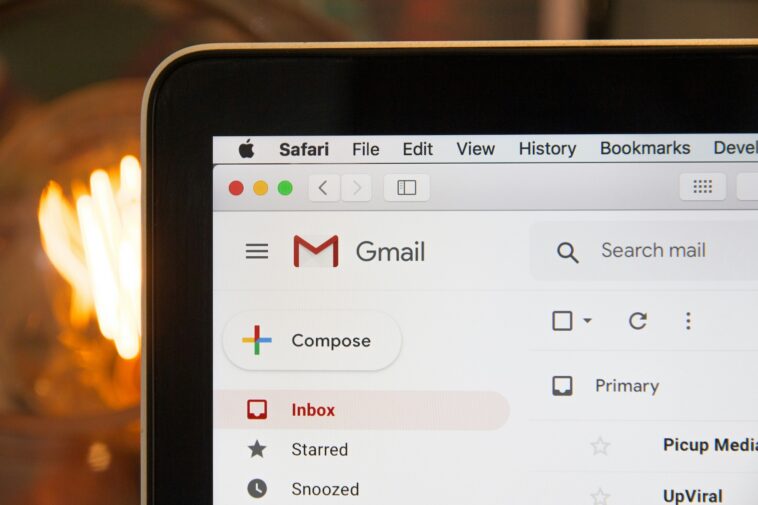Your email login details could be part of one of the biggest password leaks ever recorded. Millions of accounts from Gmail, Yahoo, and other major email providers were exposed in a massive breach, and if yours is on that list, the consequences could ripple far beyond a simple password change. Read on to find out how to check if your account is affected and why doing so right now could save you from a world of headaches.
183 million passwords leaked in massive data breach
More than 183 million passwords have been swept up in what experts describe as one of the largest digital thefts in recent memory. The massive data set, first revealed by Australian cybersecurity researcher Troy Hunt, amounts to a staggering 3.5 terabytes of stolen information. To illustrate the scale, that’s roughly the same as storing 875 full-length HD movies.
Hunt explained that the breach isn’t confined to one platform. “All the major providers have email addresses in there,” he said, pointing to Gmail, Outlook, Yahoo, and several others. “They’re from everywhere you could imagine, but Gmail always features heavily,” he told the Daily Mail.
Although the data was originally compromised in April, the full extent has only now come to light through Hunt’s Have I Been Pwned (HIBP) website. The exposed trove reportedly includes 183 million unique email addresses, the websites they were linked to, and the passwords used. According to Hunt, this isn’t a single breach but rather a collection of “stealer logs” records compiled by malware designed to siphon sensitive user data.
“Stealer logs are more of a firehose of data that’s just constantly spewing personal info all over the place,” Hunt explained in his blog post. “Once the bad guys have your data, it often replicates over and over again via numerous channels and platforms.”
So far, the identity of those behind the malware remains a mystery. However, Hunt warns that the fallout could extend far beyond just one compromised login. Passwords tied to an email address—used across platforms like Amazon, eBay, and Netflix—may also be vulnerable. “Stealer logs expose the credentials you enter into websites you visit, then log in to,” he added.
The massive cache of stolen data was first discovered by Benjamin Brundage of cybersecurity firm Synthient, which specializes in detecting and blocking malicious online actors. Brundage forwarded the information to HIBP for public awareness and verification.
Is your email account safe? Here’s how to check
If you’re concerned that your information may have been caught up in the recently publicized data breach, there’s a quick way to find out. Simply visit Hunt’s HIBP website and type your email address into the search bar. Then, click on the “Check” button to instantly see whether your details have appeared in any known security breaches.
Even if your account isn’t part of the most recent email account leak, don’t let your guard down. The HIBP database tracks breaches spanning more than a decade, meaning your email could have been exposed in earlier incidents without you realizing it. Checking your status regularly is one of the easiest ways to stay ahead of potential cyber threats.
What to do if your email was compromised
If you’re among the 183 million users affected by this massive data breach, acting quickly is crucial. Start by changing your email password immediately, ensuring it’s completely different from any you’ve used before. Once that’s done, enable two-factor authentication (2FA) — a vital security feature that sends a unique code to your smartphone each time you log in, adding an extra layer of protection to your accounts.
It’s also wise to update passwords on any other platforms linked to your compromised email, as many people unknowingly increase their risk by reusing the same password across multiple sites. Cyber experts recommend creating strong passwords with at least 16 characters, blending uppercase and lowercase letters, numbers, and symbols.
Security blogger Graham Cluley emphasized the importance of password variety: “Always use different passwords for different online accounts,” he told the Daily Mail. He also advised using a password manager to securely store and remember them, noting, “You won’t be able to remember them by yourself, so use a password manager to do it for you.”
Google reacts to the massive data breach
Following the alarming revelation of the massive password leak, Google has issued a statement reassuring users that the incident is not the result of a direct attack on its systems. A company spokesperson confirmed that the breach involves known infostealer malware, which targets a wide range of online activities rather than specifically focusing on Gmail.
“This report covers known infostealer [malware] activity that targets many different types of internet activity. There is not a new, Gmail-specific attack at play,” the spokesperson said.
Google added that it continues to protect users through multiple layers of defense, including automatic password resets when stolen credentials are detected. The company also urged users to strengthen their own security measures by enabling two-step verification and adopting passkeys, which Google describes as a simpler and more secure alternative to traditional passwords.
Source: Daily Mail

